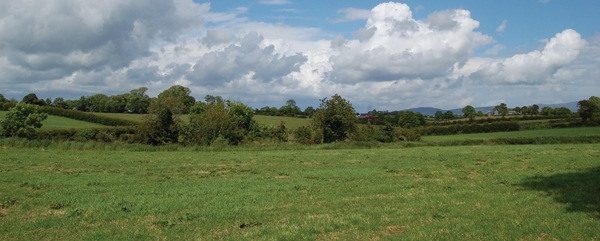Going green
Party priorities for climate change, farming and conservation.
Most environmental matters are devolved but some national policies will impact on Northern Ireland, especially on climate change.
DUP
An increase in allotments in urban areas would please the party. They state that the province must make a contribution to upholding international agreements to cut carbon emissions. The DUP also supports efforts to reduce the carbon footprint of the government estate, which currently stands at 25 per cent of the province’s total energy use. It backs further research to develop farming techniques that reduce the carbon footprint and methane output from the Northern Ireland livestock sector and is currently exploring ways to support anaerobic digestion on farms in Northern Ireland.
In order to eradicate bovine TB and brucellosis they agree with the Welsh Assembly Government’s policy called: ‘Find it, deal with the source of infection and stamp it out.’
Sinn Féin
Harmful emissions must be reduced by 80 per cent or greater by 2050, requiring a rate reduction of at least 3 per cent per annum, according to the party. Zero carbon affordable homes should be a focus and more allotments and community gardens should be factored into urban areas.
A new rural white paper with equality and all-island development would be a priority, as would reform of the Common Agricultural Policy (CAP) to ensure that
single farm payment is maintained and capped at £100,000. A new Forestry Bill would aim to double forest cover across Northern Ireland over the next 50 years. Their new Regional Development Strategy aims to establish a new vision for the region over the next decade, founded on equality and an all-Ireland agenda.
SDLP
The SDLP advocate an all-island spatial planning strategy. The North/South Ministerial Council agenda must be expanded to include a climate change sector, where an assessment of how we can best use natural resources for the benefit of the environment can be carried out.
A rural white paper for the region would ensure resources for a rural development action plan. In order to create jobs, the party would work with other MPs from rural regions to ensure the next government puts forward the needs of rural Ireland when negotiating reform of the CAP. They would also promote farm diversification.
UCUNF
Conservatives and Unionists would explore the potential for a Green New Deal in the province. They would introduce an emissions performance standard to limit the levels of greenhouse gases produced by power stations. Protecting endangered species and vital habitats from destruction is important to the parties. In addition they believe that future reform of the CAP must reflect the central importance of farming to the economy, society and the environment, whilst acknowledging consumer concerns
about food quality and food security. They would also introduce honesty in food labelling to give consumers the choice to buy food produced locally.
Alliance
The party wants a Green New Deal which would include tighter regulations on planning and building. A green economy task force, sponsored by the Northern Ireland Executive and including representatives from the business community, is also advocated by the party.
They support the EU’s reform of the CAP and say it would ensure a long-term sustainable agriculture sector, through shifting support from production and export subsidies towards diversification, conservation and rural development.
Others
Sustainable development and transport policies would be drawn up by local authorities in co-operation with non-governmental organisations if the Green Party had their way. They would insist on strict implementation of a ‘polluter pays’ principle.
Hard-pressed by the bureaucracy of Europe on one hand and the ‘anti-farming’ tendency of DEFRA on the other, Northern Ireland agriculture often feels the pinch, according to the TUV. They would force the department to pour money into front line farming needs rather than “soft social projects”.
Labour would seek to ensure fairness for food producers through EU reform and a supermarkets ombudsman, thus affecting local food producers.






